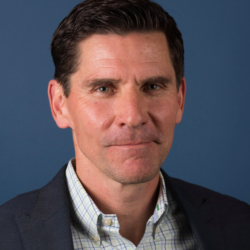LAUSD Officials Say They’ll Deport Unvaccinated Students to One of the District’s Poorest Performing Schools
Editor’s Note: A day after this commentary appeared, Los Angeles Unified announced it will consider postponing until Fall 2022 its decision to force unvaccinated students into the demonstrably failed City of Angels program. Engaged parents made this happen. Special thanks to UTLAuncensored, Reopen Schools, and other ParentUnion.com allies.
News that a mother has accused Los Angeles Unified of vaccinating her 13-year-old son without her permission was the headline news this week – especially the odd piece of info that the kid says he did it only after he was offered a bribe in the form of pizza. But behind the scenes is another vaccine challenge — how the district will handle students who don’t meet its self-imposed January 10 deadline for proof of vaccination.
Some 34,000 – about 12 percent – of Los Angeles Unified School District’s students 12 and older have not met the deadline to submit proof of their first COVID-19 vaccine, according to a recent Los Angeles Times report.
District officials say they’ll automatically register unvaccinated students in the City of Angels school, LAUSD’s poor-performing independent study school. Until recently, the school hosted just 1,537 students looking for flexible schedules, such as child actors. Typically, City of Angels students in the in-person program were required to meet with a teacher for just one hour each week and to complete a weekly 30-hour homework packet. There is also an online academy as well.
Given those modest demands, the school’s dismal performance data should surprise no one. In 2019, 61 percent of the school’s students were chronically absent – six times higher than the state average. Students perform worse than their statewide peers in math, English and language arts, and worse even than the average LAUSD school. They’re less likely to be prepared for college and less likely to graduate high school compared to the state average.
But this school year, City of Angels was rebooted to serve as an alternative for families uncomfortable with a return to in-person learning. Suddenly, the formerly small independent school is now hosting 16,000 students, a more than 10-fold increase.
You can guess what’s happening now.
A large number of these students faced teacher shortages, administrative, and enrollment problems, the LA Times reported, Some students missed days or weeks of instruction, even after constant emails and phone calls. One parent’s kids had their teachers reassigned three times. Many of the teachers are actually just substitutes. Some have “received ever-shifting instructions and no guidance from administrators by phone or email.” Scott Schmerelson, a board member for the Los Angeles Board of Education, called the situation “an emergency.”
It’s hard to imagine how adding another 34,000 students to City of Angels will make that emergency anything other than a catastrophe.
LA Unified is holding the line, hoping most parents will end up vaccinating their kids. But a nationwide survey by the Kaiser Family Foundation said 22 percent of parents of 12-17 year olds said they definitely will not vaccinate their children.
Giving likeminded LAUSD parents an ultimatum – get the vaccine or attend one of L.A.’s worst schools – may drive them out of the district altogether. Parents still have some alternatives to district schools, including homeschooling, learning pods, or private schools. A ballot initiative aimed at offering parents $13,000 annually for private school tuition or other qualified education expenses is now in the signature-gathering stage, with the goal of appearing on the November 2022 ballot.
***
Will Swaim is the President of the California Policy Center and cohost of National Review’s Radio Free California podcast.
California Policy Center’s Policy Analyst Brandon Ristoff provided the data research.
